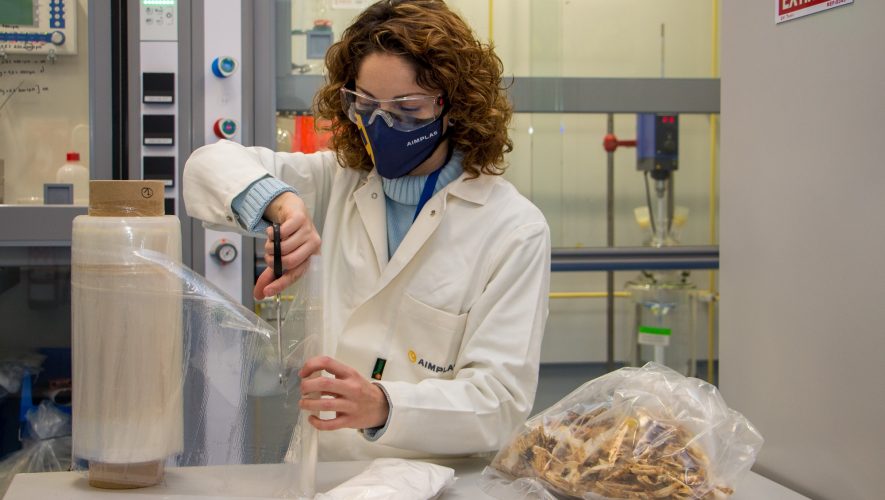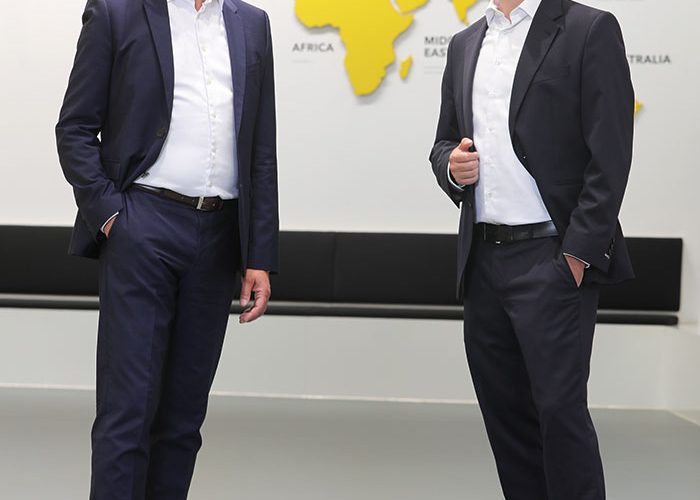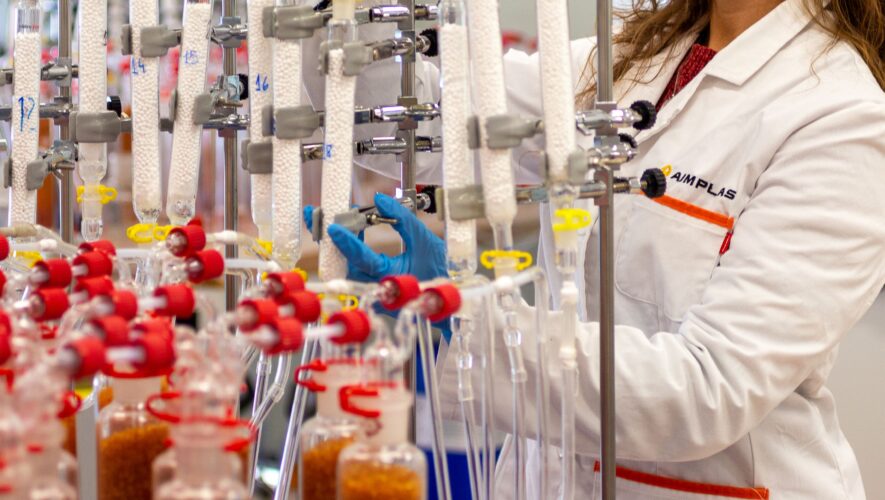Fishing industry by-products and municipal solid waste are transformed into bioplastics for use in the automotive industry, flame-retardant additives, and barrier packaging to extend the shelf life of food. The European DAFIA Project, coordinated by AIMPLAS, provides the automotive and food packaging industries with sustainable solutions by developing biopolymers, flame-retardant additives, and barrier packaging. This project is in line with circular economy criteria because it involves obtaining new resources from marine and municipal waste that respect the environment and human health.
AIMPLAS, the Plastics Technology Centre, is the coordinator of the European DAFIA Project, whose aim has been to recover municipal solid waste and marine rest raw materials from the fishing industry in order to obtain new, high value-added products and additives. The results have included flame retardants that provide an alternative to halogenated models, sustainable barrier packaging and edible coatings that extend the shelf life of food, and chemical substances that can be used to produce new plastics from renewable resources.
The fifteen partners in the project consortium have worked for the last four years on waste that appears to have no added value, including municipal solid waste (household rubbish) and the by-products of the fishing industry. Fishing industry waste was used to extract and formulate flame-retardant additives at pilot plant scale. These additives can be used in the automotive industry to increase the flame retardancy of polyamides with components that provide an alternative to halogenated flame retardants, whose use is restricted due to the danger for human health. In this case, there are two advantages: these additives have the same properties as conventional ones, and they also respect the environment and human health because they come from renewable resources. Fishing industry waste was also
used to obtain alternatives to ethylene vinyl alcohol (EVOH, of fossil origin) that have oxygen barrier properties. This fish-gelatin-based formula can be incorporated into food packaging film or used to actually coat food in the form of an edible coating that extends its shelf life. This case is a perfect example of circularity in that fish waste is reincorporated into the production chain to package food, thus preventing the generation of waste by using it as a new resource. In the case of municipal solid waste, the use of innovative fermentation processes has made it possible to extract building blocks from sugars (carbon source) that can be used to synthesize biopolymers such as bio-based
polyamides. These materials come from renewable sources and also have applications in the automotive industry.
This project was funded by the European Union Horizon 2020 research and innovation programme under grant agreement number 720770. The consortium is made up of the following companies and centres: POLITECNICO DI TORINO, SINTEF OCEAN, SINTEF INDUSTRY, DANMARKS TEKNISKE UNIVERSITET, IRCELYON, NUTRIMAR, INOVAÇÃO I RECERCA INDUSTRIAL I SOSTENIBLE, BIOTREND – INOVAÇÃO E ENGENHARIA EM BIOTECNOLOGIA, DAREN LABORATORIES & SCIENTIFIC CONSULTANTS, MINE PLASTIK, BIO BASE EUROPE PILOT PLANT, BIOPOLIS, ARKEMA IRCELYON and THE NATIONAL NON- FOOD CROPS CENTRE.



